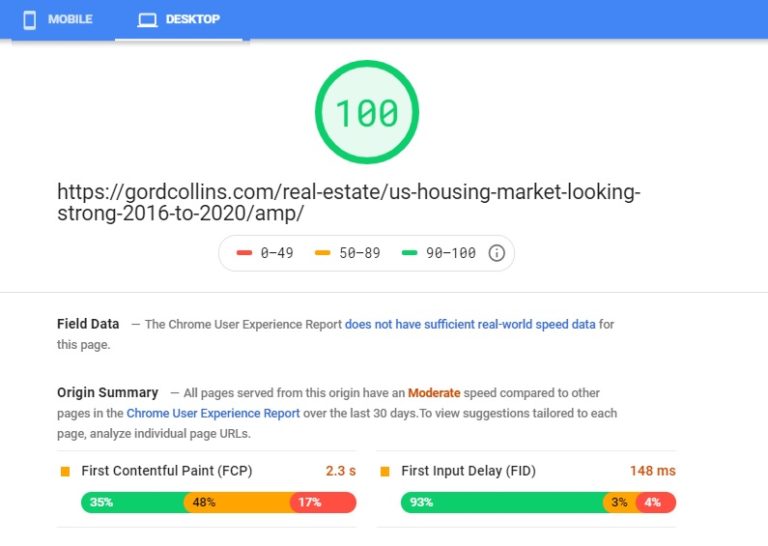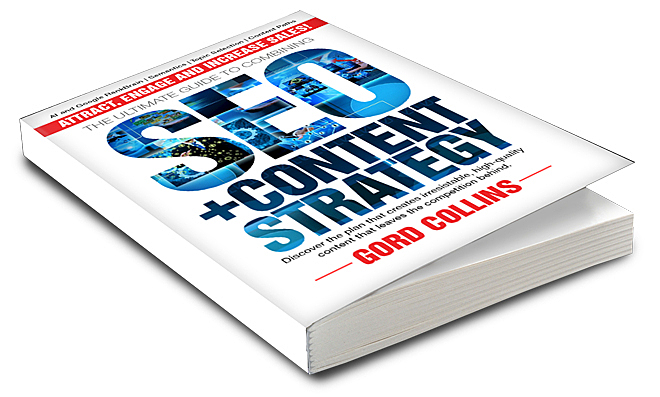Keyword Research
Traffic from Google, Bing, Yahoo and Duckduckgo continue to be, by far, the largest source of new customer leads and even return visitors, for additional sales revenue. SEO is still King.
However, that traffic depends greatly on the keywords businesses optimize their site for. Choosing the right keywords counts. Choosing the wrong keywords is disaster. Choosing keywords you can’t compete well enough for may be disaster too. Choosing keywords you can compete for is a smart choice.
And if you’re fortunate enough to perform SEO for a big corporation, success is almost child’s play. I’ve had the good fortune to increase one major corporate client’s yearly website visits from 1.2 million per year to over 2.5 million. It’s fun to have strong clients because it’s much easier. To win against competitors which are twenty to one hundred times stronger, you’d better be bright!
Underdogs must be really good today.
Leads Derived from Bing, Yahoo and others
Ranking at the top for keywords brings good customers, and it may keep your current customers loyal, and bring back visitors to your site so they can resume their purchase intent. High rankings are valuable for branding too, but all of this must be on the right keywords.
Search engines such as Google, Bing, Duckduckgo, and Yahoo rank web pages based on their keyword relevance. They can bring good leads too. Their users like them. Even Youtube uses words to identify video content so it can be ranked and presented appropriately.
But understanding how search engines use keywords as a ranking signal isn’t so easy.
It used to be straightforward with exact matching of keyword phrases (e.g. marketing software) in the page copy to what searchers typed in when searching. Today however, search engines look beyond the obvious to deeper meanings and intent when searchers type in a query.
An SEO copywriter/content strategist needs to understand which keywords their ideal target customer uses, what their actual intent is, and what topical themes are related to those keyword phrases. So it isn’t just keywords. There is a contextual reference provided by all your content and by the content of those sites that link to you.
You can rank more easily for phrases used by websites that link to yours. They’ve given you a keyword reputation that Google respects. But that may not be the keyword phrases you need to rank for. You need to find those keywords and then begin a new content strategy to rank for them too.
How to Find the Right Keywords
If you have important competitors in your space, you’ll want to analyze which keywords they are using in their content, see which pages rank highest and draw the most visitors, and use keyword research tools.
Keywords research tools include SemRush, Ahrefs, Google trends, and Spyfu. They can provide keyword lists, variations and related words, search volume and may identify competitor pages that are ranking well.
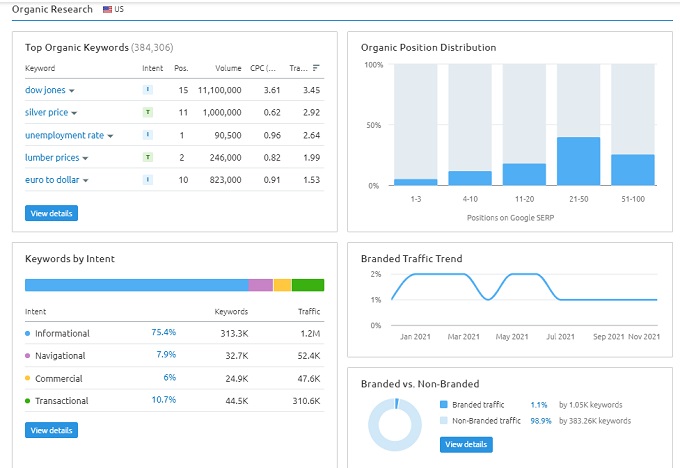
As you can see from the above graphic, the keyword tools have evolved and can help you find and understand keywords better.
Your Content Creates the Links to the Your Site
The keywords you use in your content, html titles, and text links are important. You’ll want to review those websites that link to your top competitors.
While amateur SEOs and marketers plaster their copy with keywords, it is the keyword usage of sites that link to your site you should be concerned with. The Semrush dashboard can help you discover those pages. You can analyze the anchor text of links that point to your site, and you can review the keywords those pages contain. You can find the pages that link to those pages, and review the keywords in them too.
There’s a bit of work in discovering the topic and keyword themes of pages on the web that give other sites a big boost in their rankings. You’ll want to get links from high authority sites too.
Yet, those website owners/copywriters/bloggers will often use the words they find on your site and page. They’ll actually use your own words to talk about your site and link to it. Ensure your copywriting gives the right “keyword message” and you’ll get a bigger ranking boost from their sites.
There’s some trickiness that SEO experts use in capturing keyword value. We often write in a way with links, that modify the meaning of incoming links (and Pagerank) to give our pages more relevance.
This will involve using related words, synonyms, stemmed variations, and branded phrases to shape what Google believes our content is about. We’re sort of helping Google better understand the content instead of leaving that to chance.
If a prospect types in “economic forecast” for instance, it is a general phrase and Google doesn’t know what’s really meant. It could be US economic forecast, or global economic forecast or California economic forecast. It could mean they are looking for predictions, stats, and more for next year or the next 10 years.
One way to find out what Google thinks is to choose private mode on your browser, and do a search for e.g., “economic forecast.”
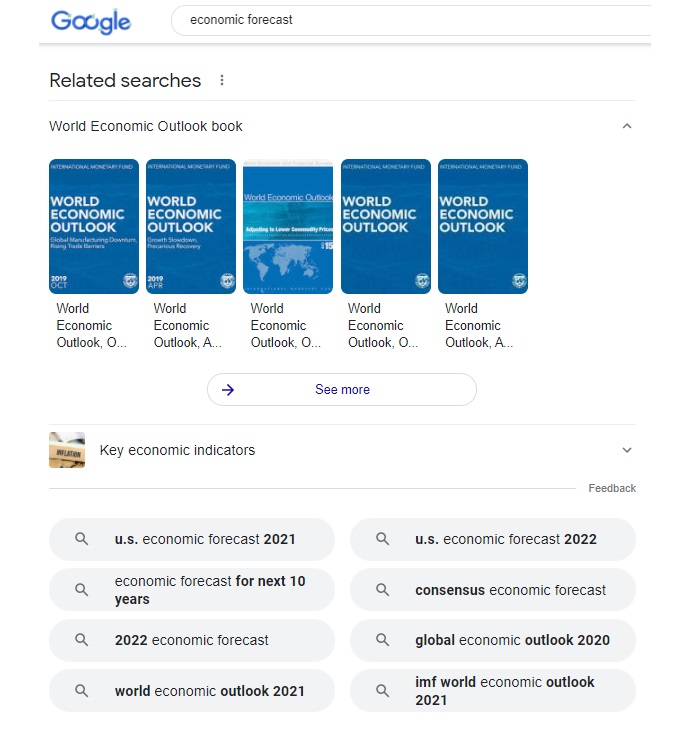
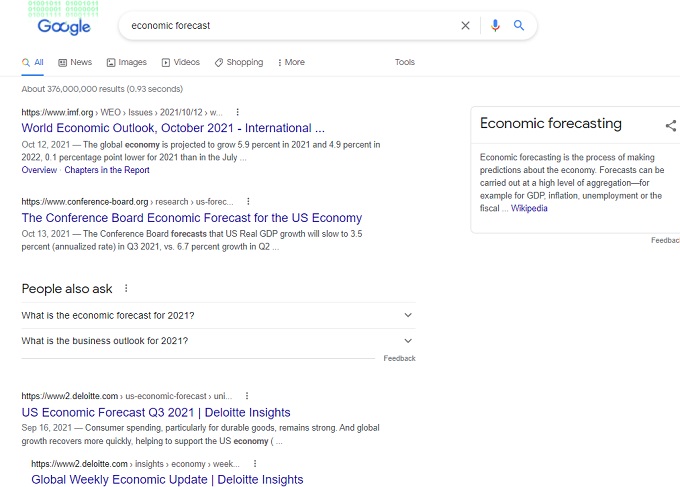
You’ll find keyword hints at the top and the bottom. Google’s search features provide alternative searches. Of course, Google modifies those suggests based on its business objectives, however, these feature boxes do effect what searchers will click on. When you click on them you’ll get search results for those specific phrases.
So Google’s suggested phrases have to be taken into account in your optimization.
This is how Google reduces natural keyword usage. And in the address bar, when you search, Google may try to autofill keyword choices. Google’s influence can ruin your own natural keyword selection, eliminating search traffic for those phrases you believe are relevant to your searcher’s intent.
It is search results provided from Google’s own point of view.
Google has a webmaster search console which will be valuable keyword research too, since these are the keywords you’re ranking for now.
If you have a good analytics system, you can discover which keywords are bringing in real customers and actual sales revenue. You can use it to view user engagement and where their visit ended.
Visitors May Return Too
Also keep in mind that B2B or B2C customers don’t buy right away. They may do further searches on Google today or a month from now to continue their own research. They may use different keywords, perhaps longer phrases with some specific feature in mind (e.g., jogging shoes, ankle stability, arch support).
They’re getting more educated on the benefits they need to look for. Your content guides that investigation and that’s part of your conversion funnel pathway built into your web content, or your UX design.
The console keyword tool along with Google’s keyword suggestion tools (Google ads) can be misleading. They process and modify all actual data and give reports that might be skewed. Beware of skewed data.
Keyword Difficulty Score
Below is a screenshot of SemRush’s application shows you some deep insight into keywords, related keywords and even questions which searchers often ask. All excellent helpers to target the very best keywords for you. It even gives you a keyword difficulty score!
Difficult scores combined with high ppc prices for that phrase tell you it is a prized keyword phrase. These are the words that create real customers. Your competitors are after them for a reason.
I typically don’t worry about keyword difficulty because whatever it takes, I have to do, easy or tough.
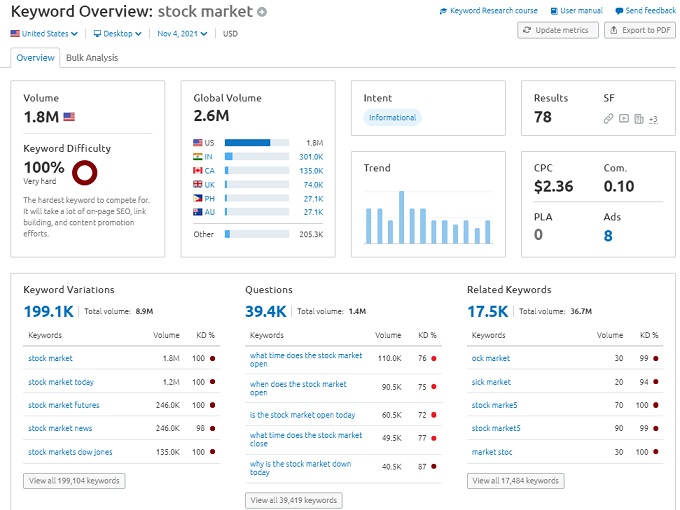
Okay, so there are tools and indicators and lots of content for you to pore over to pull out the very best keywords, keywords that will bring in traffic volume and other keywords that generate highly relevant and qualified customers.
High volume keywords don’t always produce the best customers.
Your keyword research must begin with your customer profile and their intent.
- what is their need, preference, habits with, and understanding of your products/services?
- what do they like about competitors products?
- what is the single most important benefit they need?
- what is the benefit value proposition of the market leader in your sector?
- what content do they usually view on your website
- which pages do they read the longest (engagement)
- why don’t they buy?
- launch a ppc ad campaign on Google ads to discover which keywords perform the best for engagement and leads
The most difficult part of this is discovering searcher intent. Dig deep and persistently to find out what prospects expect and want ideally in a product/service.
If visitors aren’t converting into customers/sales, it might not be your keyword choices. It could be your product/service doesn’t have the benefits they want. It could be a value proposition problem.
Searchers/consumers can often tell right away from the Google search listing description and keywords that you don’t have what they want. So yes, keyword choice and usage is very important.
Good luck with your journey to speak your customer’s language.
More insight: SEO Company | Content Strategy | SEO Services | Digital Marketing Audit | Best Marketing Software | SEO Expert | Predictive Analytics Software | SEO San Diego | SEO Services Boston | Calgary SEO Service | Better Conversion Rates | Marketing Agencies in California | SEO Consultant Fees | Professional SEO


